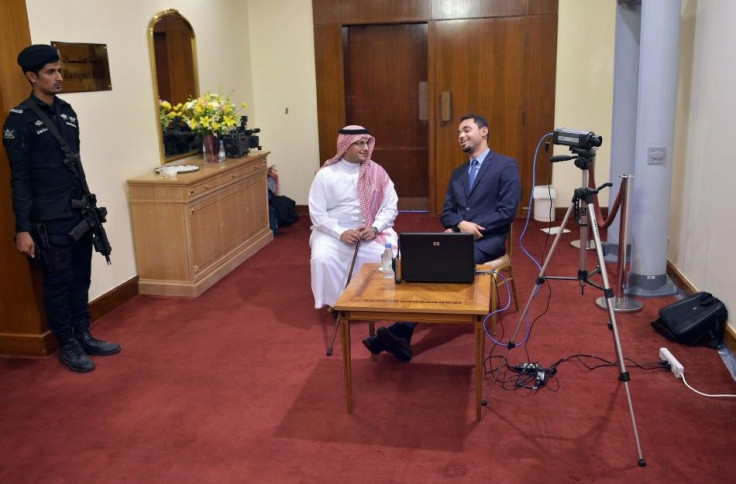MERS-CoV in Canada: Doctor Who Had Contact with Afflicted Florida Patient Tests Negative for Virus; U.S. Posts Warning Signs at 22 Airports; Netherlands Reports 1st Case

The Public Health Agency of Canada on Wednesday said the doctor who had contact with a MERS-CoV (Middle East Respiratory Syndrome coronavirus) afflicted patient in Florida and then travelled to Canada has tested negative for the virus.
The unidentified doctor who travelled to Canada on vacation has been instructed to stay in the country until health officials fully ascertain he is totally scot-free from the virus that has killed 145 worldwide, majority from the oil-rich nation Saudi Arabia.
Canadian health officials said the MERS-CoV takes 14 to 16 days to develop. While they heaved the doctor tested negative for the virus, they still want to make sure he really did not contract the infection beyond the supposed incubation period.
The unnamed doctor is co-operating fully with Canadian health authorities, Dr. Gregory Taylor, Canada's deputy chief public health officer, told the Canadian Press. He is one of the 20 health-care workers from Florida being tested and monitored after getting exposed to a patient with MERS-CoV at the Dr. P. Phillips Hospital in Orlando, FL on May 8.
Read: MERS-CoV: 2nd Case Reported in U.S.; 'Diseases Spreading All Over the World'
He had isolated himself in his hotel room, they added.
"If the (test) swabs are all negative, if the person remains totally asymptomatic and has absolutely no issues whatsoever - and we're doing the swabs both at the provincial laboratory and our laboratory (in Winnipeg) just to be doubly sure - and if he agrees to wear a mask, we think the risk is extremely low for Canadians," Taylor said.
"So if it's Day 10 and all those are in order, I think we're going to say 'Yeah, it's OK for you to go.'"
It will be a different scenario altogether if he does develop symptoms, Taylor said. Immediately, a ban for travel will be imposed on him.
Read: MERS-CoV in Saudi Arabia: Infected Cases Continue to Rise, Experimental Vaccine Developed
Meantime, the U.S. has posted warning signs about the MERS-CoV in at least 22 major airports nationwide.
"We're not going to see the last of this," the Chicago Tribune quoted Dr. Kevin Sherin, director of the Florida Department of Health for Orange County. "We are going to see more cases coming to our community. ... All of the emergency departments in the United States, to be perfectly honest, need to become very familiar with the Middle East Respiratory Syndrome, and making sure the protocols are in place."
Read: Islam Ramadan: Haj Seasons at Risk Due to Rising MERS Virus Cases in Saudi Arabia
The warning states that while risk to most travelers, people are urged to go immediately seek medical attention once they get sick within 14 days of being in the Arabian Peninsula.
Dr. Antonio Crespo, chief quality control officer at the Dr. P. Phillips Hospital, said he had modified changed procedures in the hospital's emergency department. Any patient with flu-like symptoms will be immediately interviewed if they had traveled to Saudi Arabia or other countries experiencing MERS outbreaks.
He noted the window time from the moment the Florida patient came in to the hospital up to the time he was seen by a doctor is very crucial and risks further spreading the virus to healthcare workers.
The Florida patient spent at least four hours in the public waiting room before he was seen by a doctor. And then another eight more hours passed before staff determined the patient had traveled from Saudi Arabia. It was only around this time that he was moved to an isolation room.
"Travel history is very important to ask about," Dr. Amesh Adalja of the University of Pittsburgh Medical Center said.
Read: Cure or Vaccine for MERS-CoV Virus May Already Be Near; Camels Found to Be Culprit Carriers of Disease
Meantime, the Netherlands has announced its first MERS-CoV case on Wednesday. The male patient who had also visited Saudi Arabia has been admitted to a hospital in The Hague.
The World Health Organisation on Wednesday continued to rule the deadly virus is not a global health emergency because it still lacks evidence of sustained human-to-human transmission.
"The committee concluded that the conditions for a Public Health Emergency of International Concern have not yet been met," the WHO said in a statement.





















